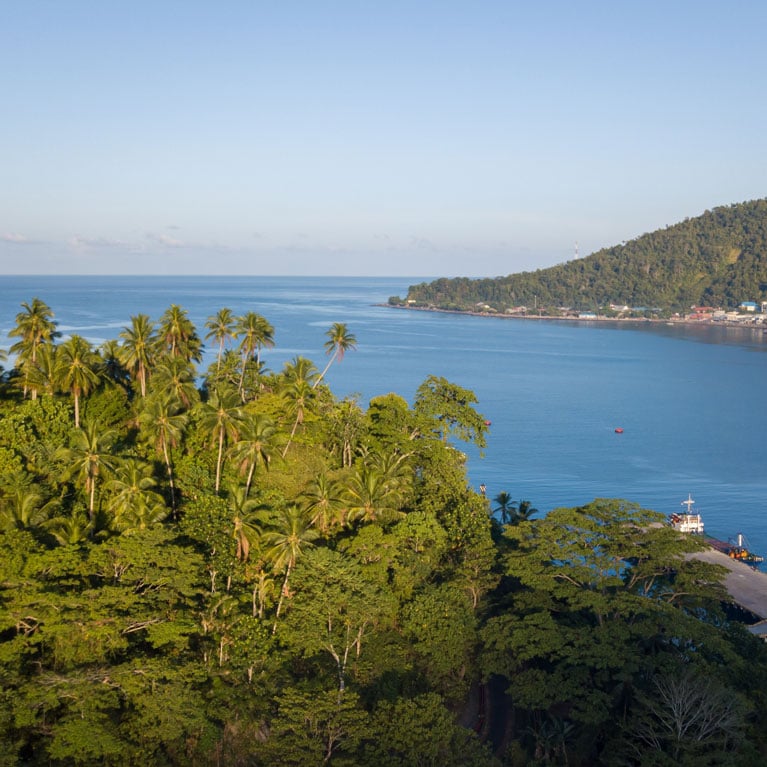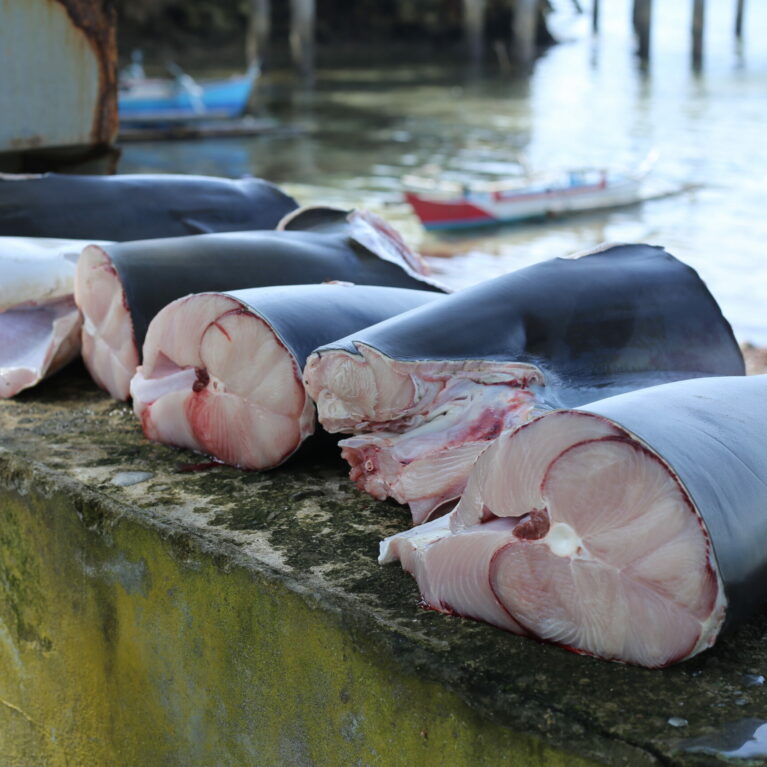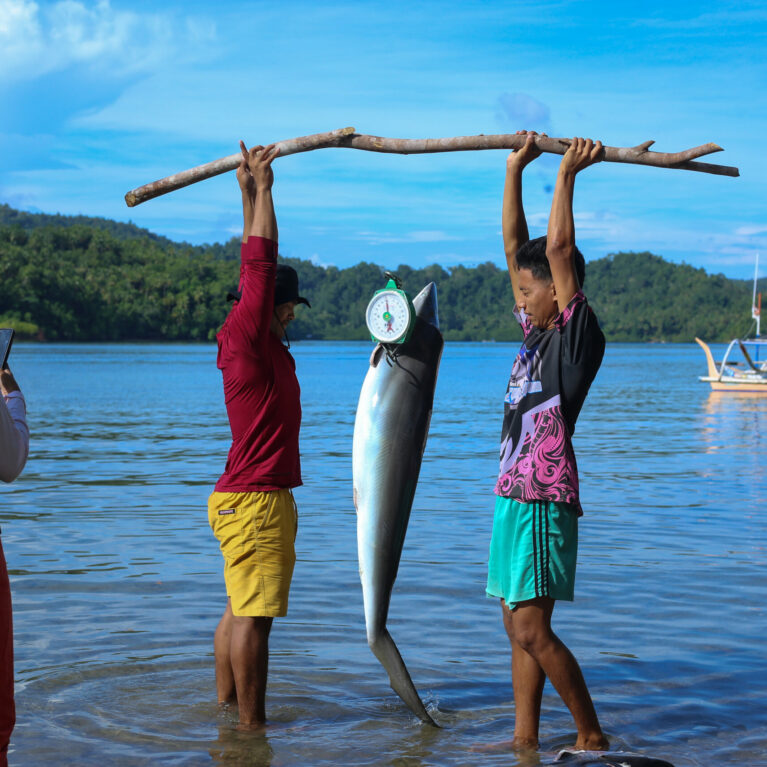The sustainability of shark fisheries in Indonesia
Citra is delving into the intricacies of how the small-scale shark fishery operates in Batuwingkung Village, Indonesia. As one of the world’s largest shark-fishing nations, Indonesia faces serious shark and ray conservation challenges. Citra will evaluate the vulnerability of targeted shark species and look to designing a sustainable management plan where local communities are particularly dependent on shark fisheries in the Batuwingkung Village. For this to work as a larger-scale vision, Citra will help to develop conservation efforts and sustainable fishery management throughout the Sangihe Islands.
I have loved doing research since high school. I won a silver medal in the Indonesian National Research Olympiad in 2013 before continuing my studies as an undergraduate in biology at Universitas Gadjah Mada, Indonesia. While there I joined the Marine Study Club and we conducted a lot of small research projects. My desire to be a marine biologist grew when I led a research expedition in Wakatobi National Park, in the province of South-east Sulawesi. I will never forget when I learned how to swim and dive! In 2018, I got an opportunity to do a...



Get close to small-scale shark fishery in Sangihe Islands, Indonesia: Socio-ecological system approach
This project contributes to understanding the complexity of socio-economic and ecological data on small-scale shark fisheries, which is important for better integration of fisheries and trade management. The objective is to enhance community participation in efforts to conserve and sustainably manage shark species.
The localised pressure of fishing and trade in sharks is pushing stocks close to the critical limit. Shark stocks worldwide have declined, yet they support millions of livelihoods. Sharks add to regional economies through artisanal, commercial and industrial fishing and international trade in the fins, meat and skin. These species are a component of a complex socio-economic challenge that we need to explore fully to understand and be able to resolve it.
Indonesia has one of the largest shark fisheries in the world, having landed more than 1.2 million tons between 2009 and 2019, and it is a fishery that is closely connected to many coastal communities. A relatively low export volume suggests that much of the catch is consumed domestically by these communities. Moreover, a diverse and unregulated small-scale fishery, a high incidence of illegal fishing and unsystematic data collection make the management and conservation of elasmobranch species in Indonesia very challenging. In the Sangihe Islands in northern North Sulawesi province, we found that local communities, and Batuwingkung village in particular, are highly dependent on the shark fishery. The most commonly caught species are silky shark Carcharhinus falciformis and blacktip shark C. limbatus, which are recorded as Vulnerable on the IUCN Red List. The silky shark is also listed on CITES Appendix II, which restricts international trade in the species but allows domestic use. These two species are also recorded as the dominant catch in other areas, such as East Lombok, Namosain (East Nusa Tenggara) and Indo-Pacific waters. Because of the close connection between community and fishery, it is important to tap into local knowledge to improve the quality and quantity of data on the species’ distribution, life histories and vulnerabilities and threats they face, as well as information about the shark fishery, so that evidence-based management can be achieved..
- To access the comprehensive knowledge of the small-scale shark fishery in Batuwingkung village using a socio-ecological approach.
- To design the sustainable management of the small-scale shark fishery and evaluate the vulnerability of shark species.
- To develop comprehensive shark conservation efforts and sustainable shark fishery management in the Sangihe Islands.
Conclusion and Recommendations
Shark fishers from Batuwingkung Village have for generations caught sharks around Napo Nenung and Napo Bowone in Sangihe Islands waters. The peak season for shark catch based on the one-year shark landing was during the period of April, September and January. The targeted shark species is “Hiu Manehe” (Carcharhinus spp.) as it has higher economic value than other species. Even though shark fins have quite high economic value, 74% of fishermen are still below the poverty line.
To catch and trade the shark species which belong to Appendix II CITES, fishers need to partner with collectors/traders who have permits (SIPJI/SAJI) as it regulated in Permen KP No. 61/ PERMEN-KP/2018. There need to be an incentive mechanism for
licensed collectors/traders and disincentives for those without permits.
The data monitoring at shark landing site is essential to estimate the population stocks and predict the harvesting arrangement during potential months hence avoid the fisher’s financial losses while maintain the shark population.
This research explores the potential use of non-extractive alternatives (tourism sector) by creating the diving and non-diving tourism to shifting the shark fishing activity to tourism activity. The tourism activities therefore are expected to increase the fisher’s livelihood and reduce the pressure to shark population in the nature.

